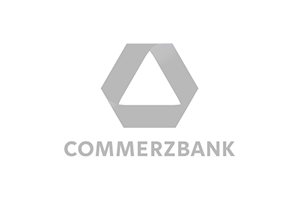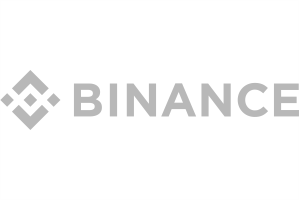In Finland, the exchange operations, cryptocurrency trading are classified as private contracts (as contracts for price differences) and are subject to capital gains taxes. They are high: from the income from the non-fiat funds conversion into the fiat ones, as well as for the goods purchasing for a cryptocurrency, you need to pay 30-34%. The exact rate depends on the amount earned – up to 30 thousand euros or more. Losses are not subject to the taxation.
Regulation of cryptocurrency activities in Finland
Issues related to cryptocurrency transactions are fully within the competence of the central Finnish regulator – the Financial Supervision Authority (FIN-FSA) In particular, the regulator supervises persons who carry out:
- cryptocurrencies issuance;
- crypto assets storage;
- exchange transactions.
The regulator distinguishes several types of assets depending on their nature:
- payment instruments which act as an alternative to traditional currencies;
- cryptocurrencies that are associated with providing access to a product or service;
- crypto assets that meet the characteristics of financial instruments, as defined by the relevant legislation, for example, are related to the right to vote or receive income.
The main characteristics of cryptocurrencies, according to the regulator:
- are not issued or guaranteed by a Central Bank or public authority;
- are not necessarily pegged to an official currency (are legal tender);
- do not have the same legal status as currency or money;
- accepted by individuals and legal entities as a medium of exchange;
- can be transferred, stored, and the subject of electronic commerce.
To carry out operations of mining, storage, as well as the exchange of cryptocurrencies, it is necessary to go through the FIN-FSA registration procedure. This will require compliance with a number of practices related to the protection of customer assets, providing their exact distinction from the assets of the supplier, as well as taking measures to combat money laundering and terrorist financing. Only crypto companies that meet these requirements will be authorized to conduct crypto activities in the territory of the jurisdiction. Note that this permit does not authorize the conduct of activities outside the country.
In general, industry monitoring is quite transparent and understandable for businesses, and the interests of customers are properly protected. This approach has proved the high popularity of cryptocurrencies in Finland, but at the same time obliges providers to adhere to high activity standards, including in terms of marketing and advertising. This trend is likely to maintain in the future. At the moment, there is no reason to believe that the regulator will change its position on cryptocurrency issues for the worse.
“Aotopay” lawyers will help you analyze the nature of the assets you are going to work with, develop individual solutions for them, and also advise on the details of the applicable legislation.
Since the country is a part of the EU, the Schengen zone, and, in the field of FinTech business and non-fiat funds, it takes into account the provisions of European directives, positions according to KYC and international AML standards. Therefore, crypto exchanges, exchange platforms that consider the potential of Finnish crypto currency licenses and who want to legalize themselves in the country should:
- create a company in Finland – for example, a popular analog of a joint-stock company, OY with a registered capital of 50 thousand marks;
- open a bank account, create a “physical” office by renting or buying real estate;
- hire staff and directors (according to European requirements, they must have financial or economic education and work experience in the field);
- draw up the documentation required by European regulators when applying for crypto currency licenses – a business plan with a substantiation of funds sources for several years, policies to prevent money laundering, counter-terrorist financing, user agreements, internal control rules, etc.;
- analyze risks comprehensively, perform due diligence;
- protect customer information and operations – organize controlled access, confirm compliance with KYC requirements and GDPR rules (if the platform serves EU residents or uses one of the languages of the European Union);
- ensure an appropriate division of own and customer assets;
- promote your services on the market following requirements of the law, in particular regarding the protection of consumer rights.
Crypto companies need to prove their credibility as potential operators in the market. Lawyers of “Aotopay” will help to understand in more detail the subtleties or nuances of regulation on the issue.
Important regulatory emphasis
In 2021, several startups managed to obtain a cryptocurrency exchange license in Finland – Northcrypto, Local Bitcoins, Prasos Cash Management, Prasos, and Tesseract Group. It’s worth mentioning that the companies managed to successfully pass all the procedures related to obtaining a license due to the fact that they paid special attention to two key aspects – the prevention of illegal money laundering and the financing of terrorism as well as ensuring the security of storing customer funds.
For example, to increase the chances of obtaining a cryptocurrency exchange license in Finland, applicants need to develop and implement the following measures:
- to develop internal policies for working with assets and conducting operations;
- to identify transactions, as well as request additional data from customers in case of doubts about the legitimacy of the source of funds;
- store personal data of customers, as well as data on ongoing operations;
- appoint a person authorized to comply with the relevant legislation, as well as to conduct regular education on this issue;
- implement a set of technical and IT measures aimed at ensuring the safe storage of funds of customers with whom the crypto company works.
This is an approximate list of actions of a crypto company that was able to register a cryptocurrency exchange license in Finland. The specific list of necessary actions is determined by the conditions of each specific case.
How “Aotopay” lawyers can help
“Aotopay” will help to simplify the business legalization and establish its work without the law violation. We will select the appropriate jurisdiction, undertake the company registration, and obtain a license for the cryptocurrencies exchange, we will resolve technical, legal, and organizational issues.








